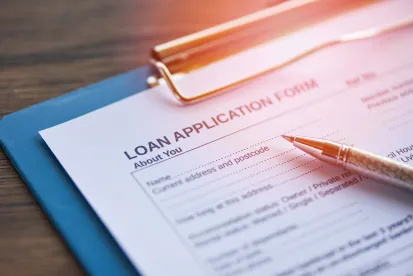One day before the U.S. Small Business Administration’s (SBA) previously announced May 14th deadline, the SBA released guidance on how it will determine if a borrower acted in good faith when making the required certification determining the necessity of the borrower’s loan request.
The guidance is set forth in the SBA’s FAQ #46, which reads as follows (emphasis added):
46. Question: How will SBA review borrowers’ required good-faith certification concerning the necessity of their loan request?
Answer: When submitting a PPP application, all borrowers must certify in good faith that “[c]urrent economic uncertainty makes this loan request necessary to support the ongoing operations of the Applicant.” SBA, in consultation with the Department of the Treasury, has determined that the following safe harbor will apply to SBA’s review of PPP loans with respect to this issue: Any borrower that, together with its affiliates, received PPP loans with an original principal amount of less than $2 million will be deemed to have made the required certification concerning the necessity of the loan request in good faith. SBA has determined that this safe harbor is appropriate because borrowers with loans below this threshold are generally less likely to have had access to adequate sources of liquidity in the current economic environment than borrowers that obtained larger loans. This safe harbor will also promote economic certainty as PPP borrowers with more limited resources endeavor to retain and rehire employees. In addition, given the large volume of PPP loans, this approach will enable SBA to conserve its finite audit resources and focus its reviews on larger loans, where the compliance effort may yield higher returns. Importantly, borrowers with loans greater than $2 million that do not satisfy this safe harbor may still have an adequate basis for making the required good-faith certification, based on their individual circumstances in light of the language of the certification and SBA guidance. SBA has previously stated that all PPP loans in excess of $2 million, and other PPP loans as appropriate, will be subject to review by SBA for compliance with program requirements set forth in the PPP Interim Final Rules and in the Borrower Application Form. If SBA determines in the course of its review that a borrower lacked an adequate basis for the required certification concerning the necessity of the loan request, SBA will seek repayment of the outstanding PPP loan balance and will inform the lender that the borrower is not eligible for loan forgiveness. If the borrower repays the loan after receiving notification from SBA, SBA will not pursue administrative enforcement or referrals to other agencies based on its determination with respect to the certification concerning necessity of the loan request. SBA’s determination concerning the certification regarding the necessity of the loan request will not affect SBA’s loan guarantee.
In essence, FAQ #46 means the following:
- Borrowers who, when combined with their affiliates, received Paycheck Protection Program (PPP) loans of less than $2 million are deemed to have made the certification in good faith.
- Borrowers who, when combined with their affiliates, are above the $2 million threshold will not be subject to any criminal or other penalties, as long as the loan is repaid in accordance with the SBA’s instructions, and will only be required to return the funds in the event the SBA determines the borrower lacked an adequate basis for the required certification.
To determine whether a borrower is subject to the SBA’s safe harbor, we recommend borrowers confirm if any affiliates obtained PPP loans and, if so, the amount of the loans. Borrowers should also note that the $2 million threshold is only applicable to the required necessity certification and that they must otherwise qualify for PPP loans pursuant to the CARES Act and SBA’s rules and guidance.
The safe harbor period for returning PPP funds expires tomorrow, May 14, 2020. Borrowers who, when combined with their affiliates, received loans of more than $2 million should determine whether to return funds as soon as possible. For additional information on the certification requirements and safe harbor period, please review our May 1st Client Alert and our May 6th Client Alert. In the May 1st alert we provided a list of factors to consider when determining whether the certification was made in good faith and suggested that borrowers should keep detailed records to support the loan request.





 />i
/>i
